The River Wye is dying due to industrial poultry farming, what can be done to save Britain’s favourite river?
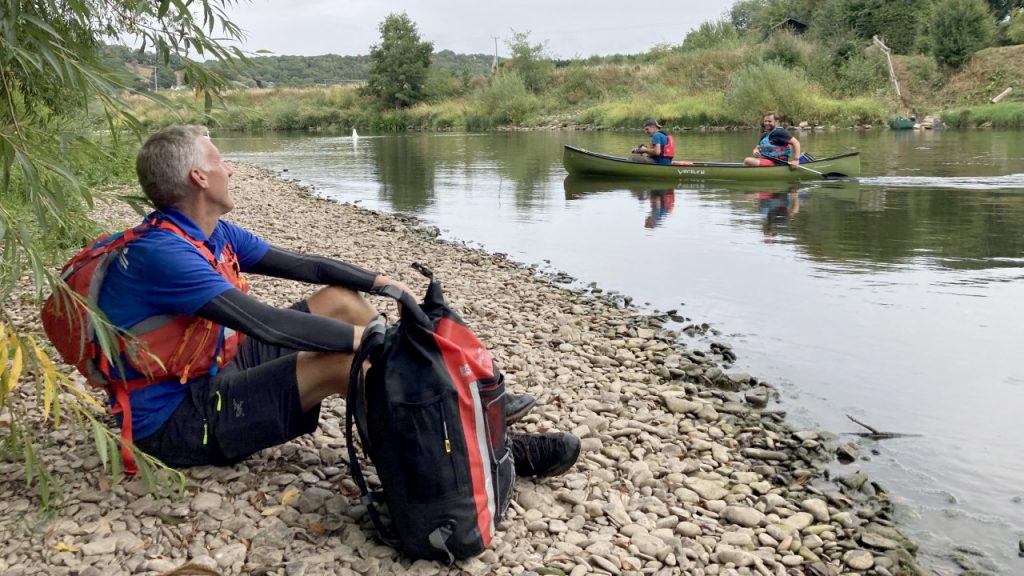
Reach your hand into the River Wye near its source high in the Cambrian mountains and you would expect to find a shiny polished pebble and fast-running pure water.
Do the same a few miles south of Hereford on one of the river’s slowly meanders towards the Severn and you’ll find that a similar stone is now hidden under a thick layer of algae and dark dirty green water, that feels sticky and slimy to the touch.
“When you pick up a pebble you notice that it feels slimy, it would wiggle in your hand, it’s almost alive with nitrates and phosphates,” said Mike Dunsbee, founder of Friends of the Wye, a campaign group determined to save this sick river.
This nitrate pollution in the Wye is the result of industrial poultry farming in the area which has decimated its ecosystem. The river that was once famed for its salmon has seen its fish stocks almost disappear in recent years.
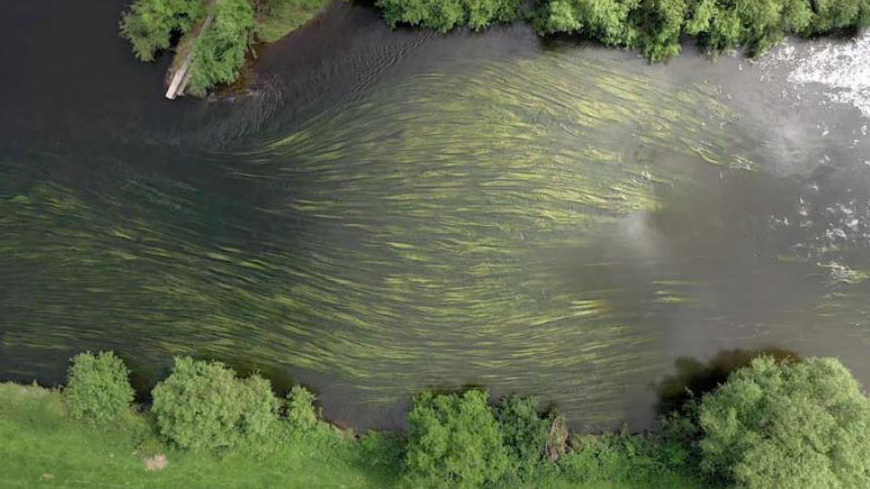
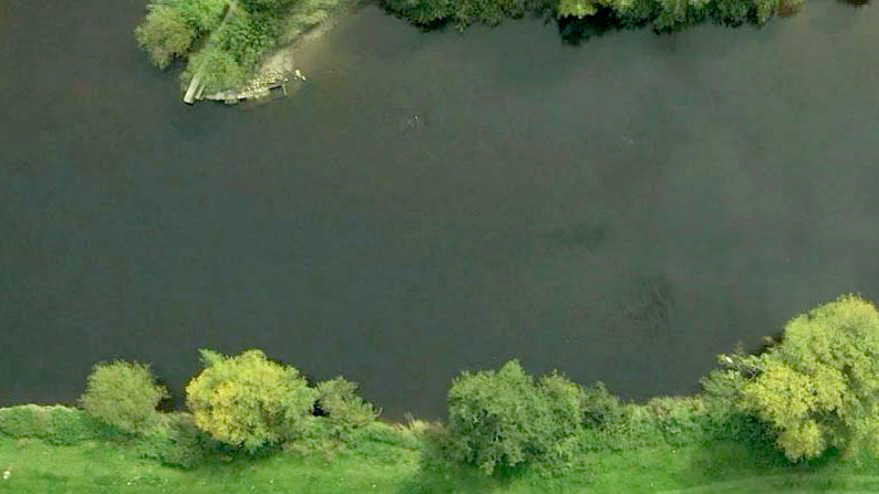
“There’s been a significant drop in fish numbers as a result, particularly salmon, 20 years ago six thousand salmon were caught on the Wye, last year it was 511.”
The pollution has seen the disappearance of a vital oxygenating plant called water crows foot, which the river’s ecosystem depends on.
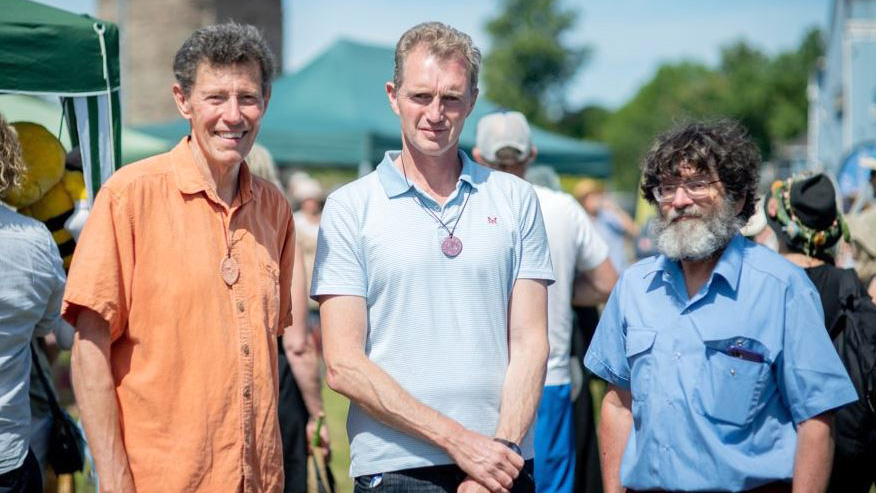
“It’s vital to all life in the river, from the little invertebrates to small fish, salmon to swans and so on, about 95% of that has disappeared and that has destroyed the wildlife within the river,” said Mike.
Avara is the largest producer in the Wye catchment, processing around two million chickens per week
“Estimates are of there being about 24 million chickens at any one time producing around 250,000 tonnes of waste per year. The problem then lies with what to do with that waste, it mainly ends up being spread on the fields as fertiliser,” explained Mike.
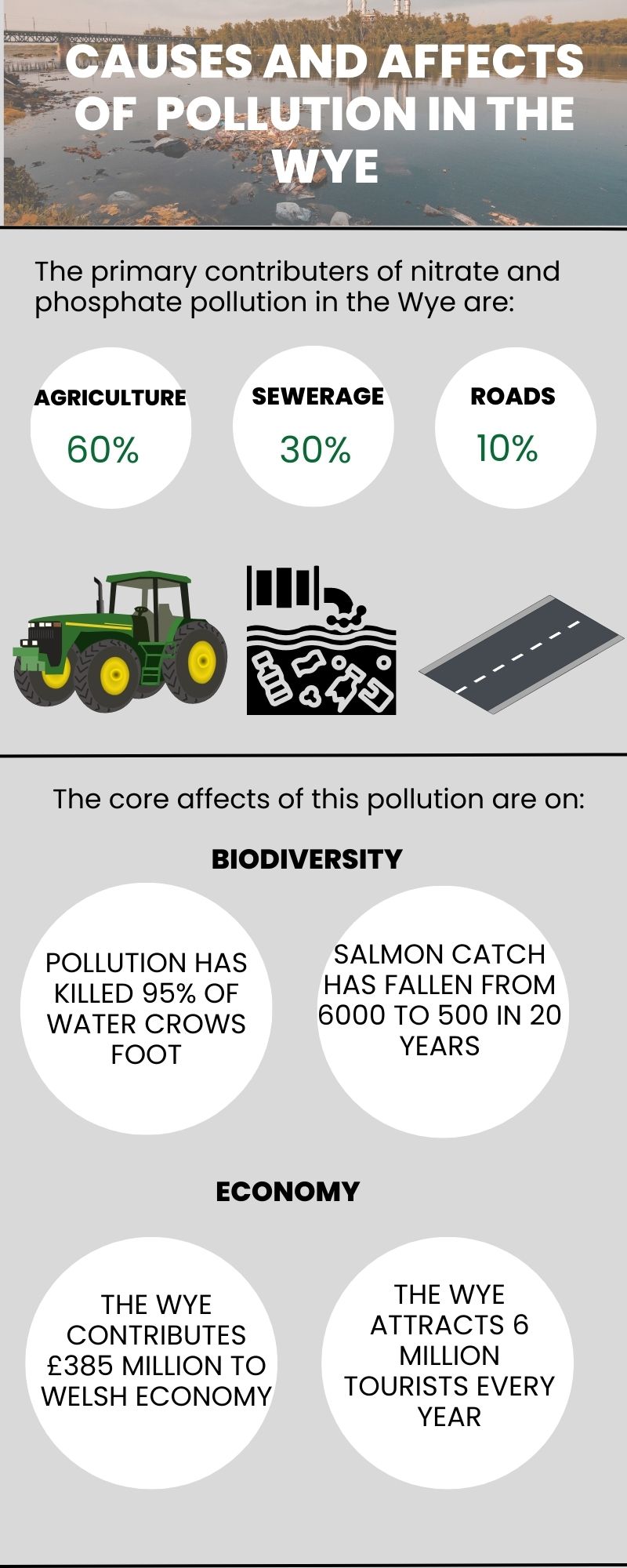
“This causes the fields to become what we call ‘nutrient saturated’, when it rains all these excess nutrients simply get washed away and end up in the Wye.”
Campaigners have described plans for an enormous new mega poultry farm on one of the Wye’s tributaries as ‘a moment of life or death for the river.’
“It’s just going to add to the situation and make it even more detrimental than it already is,” said Mike.
“The biggest issue is with what to do with the chicken waste. Any new chicken sheds are adding to the phosphate loading of the land that’s already oversaturated.”
Campaigners have appealed to the Welsh government to stop the plant from going ahead, as the decision now lies with them.
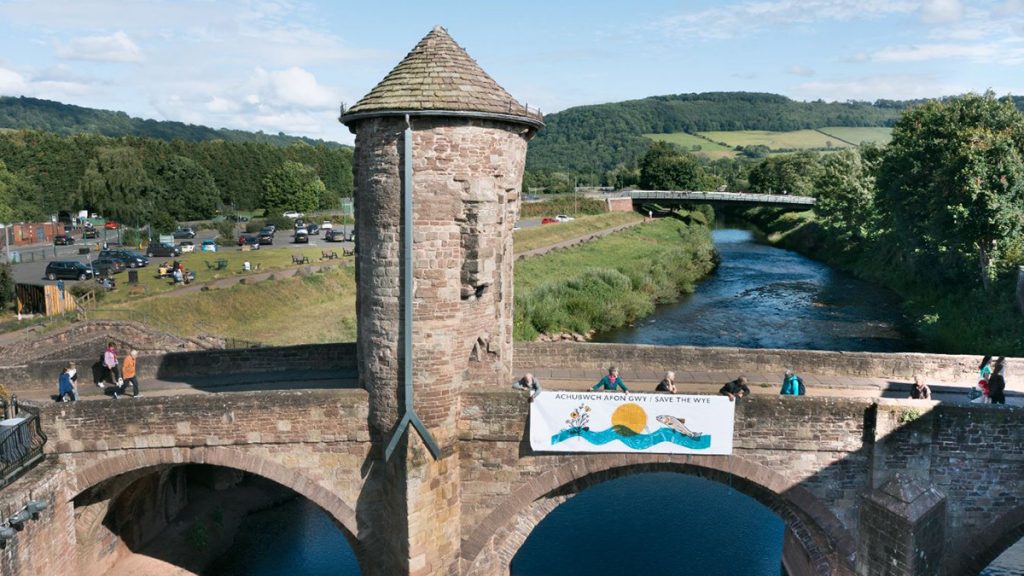
The Friends of the Wye have helped hold Avara to account for their contribution to the pollution of the Wye by setting up a meeting between them, the Government, the Environment Agency, and Natural Resources Wales.
The result of this was the publishing of a roadmap by the poultry producers detailing how they will cease their contribution of excess phosphate pollution by 2025.
“We’re chasing up Avara and talking to Tesco, so that we’re highlighting the issues we have in the hope that through their environmental policy, they will put pressure on their producers,” said Mike.
The main solution being put forward is the removal of chicken waste from the catchment entirely, through incineration or other methods.
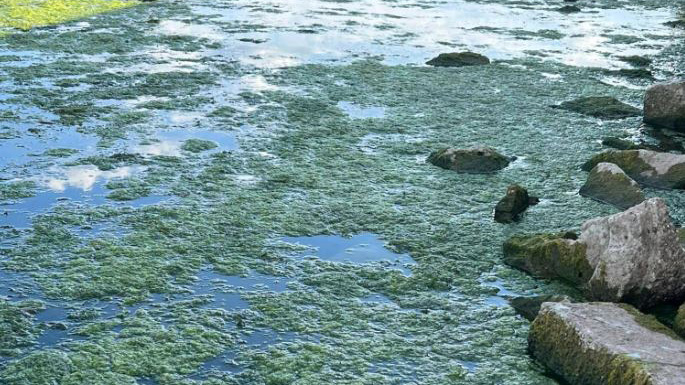
“There are areas of the UK that are nitrate and phosphate lacking and they are importing them from overseas,” Mike explained. “We could ship some of our excesses up there and make some money for farmers in the process.”
The River Wye is vital to the local economy and is a designated area of outstanding natural beauty, a vital Welsh tourism link attracting over 6 million visitors annually.
“The Wye is one of the UK’s best-loved rivers, it’s an iconic river. To lose the Wye because of excess pollution would kill tourism here, but where does it end? What about the next river and the next river after that?”
“We just need to keep shouting about it, keep politicians and producers in check, the best way to do so is to get involved in a group like ours, write to your MP’s, your local councillors, and your government.”
